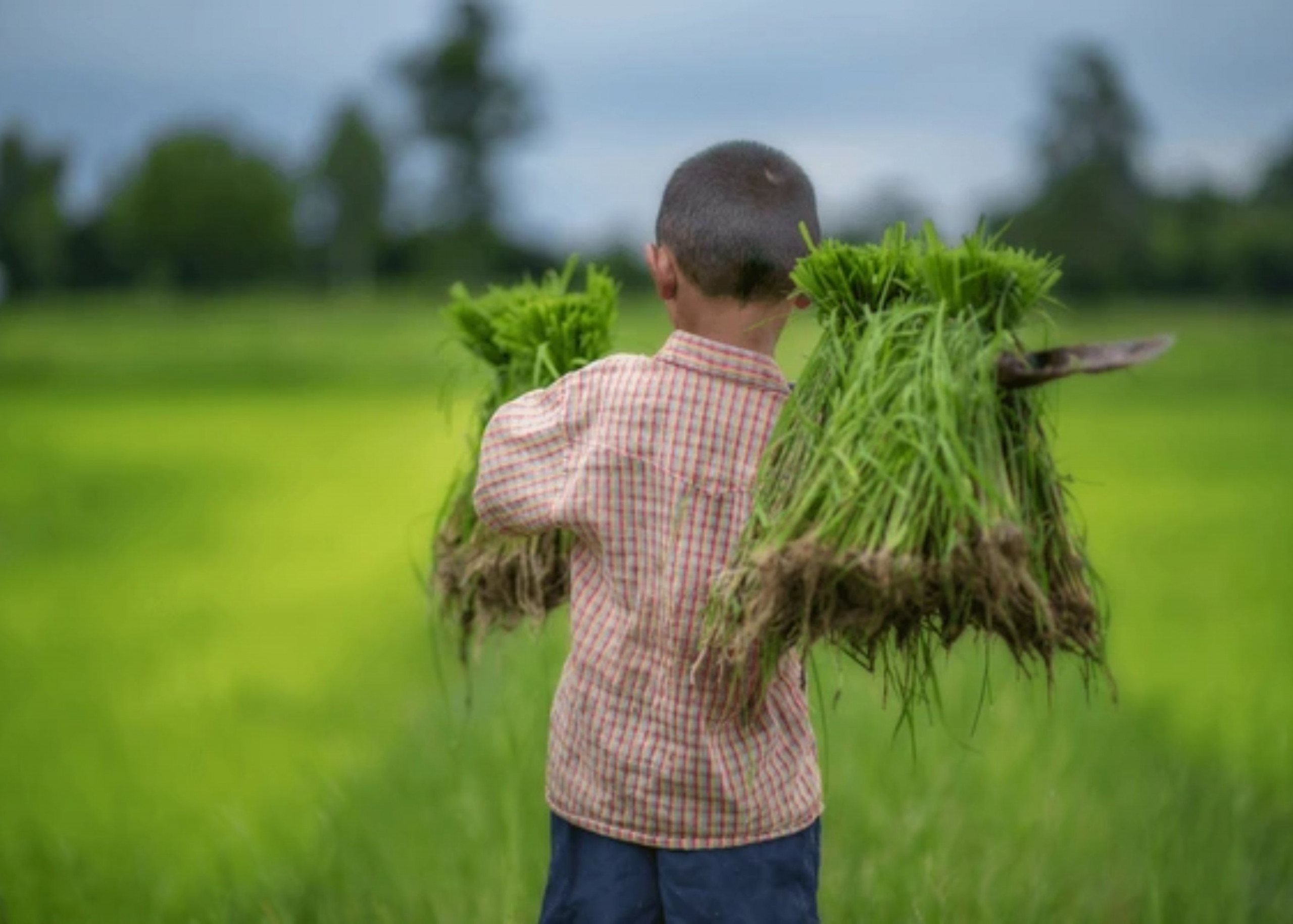News in Brief:
– The Nigerian Ministry of Agriculture and Food Security, in collaboration with the ILO, is taking steps to address child labour in the agricultural sector.
– This involves initiatives like funding allocation, staff training, promoting sustainable practices, and creating decent work opportunities for adults.
The Nigerian Ministry of Agriculture and Food Security recently hosted the International Labor Organization (ILO), in its offices in Abuja, to discuss the pressing issue of child labour in the agricultural sector.
Recognising Africa’s unique cultural context, the ministry urged for a balance between traditional practices and global child welfare and labour rights standards. Nigeria’s minister of agriculture and food security, Senator Abubakar Kyari disclosed this on his official page on X.
The country’s minister of state for agriculture, Senator Aliyu Sabi Abdullahi, and the Director of ILO in Nigeria, Vanessa Phala, participated in the discussion.
Nigeria’s agriculture ministry reiterates commitment
According to Senator Kyari, the ministry has been actively involved in combating child labour. he mentioned efforts like the World Day against Child Labour and membership in the National Steering Committee on the Elimination of Child Labour. To enhance these efforts, the minister stated that the ministry has allocated funds, trained staff, and appointed child labour test officers.
Furthermore, in line with President Bola Tinubu GCFR’s Renewed Hope Agenda, Senator Kyari said the ministry is dedicated to creating a sustainable agricultural sector that offers decent work opportunities including supporting parents’ livelihoods to reduce the reliance on child labour. He added that his team were exploring ways to engage children productively through education and adjusted academic calendars.
Child labour is a global problem
Globally, the situation is equally alarming. A 2021 report by the ILO and UNICEF revealed a disturbing 8.4 million increase in child labour, bringing the total number of child labourers worldwide to a staggering 160 million.
Meanwhile, a staggering 50.5% of children in Nigeria (31,756,302) are involved in economic activities with 39.2% (24,673,485) engaged in child labour practices and a concerning 22.9% (14,390,353) involved in hazardous labour.
Another key point is that agriculture is the sector with the highest prevalence of this practice (56.8%) followed by services (25.8%) and industry (17.4%).
A call to action
The situation is dire, especially with the 2025 target set by the Sustainable Development Goals (SDG target 8.7) for the elimination of this menace.
To this end, Senator Kyari assured Nigerians that the ministry remains committed to safeguarding the well-being of youths while ensuring that the sector remains a safe and prosperous industry for all.



